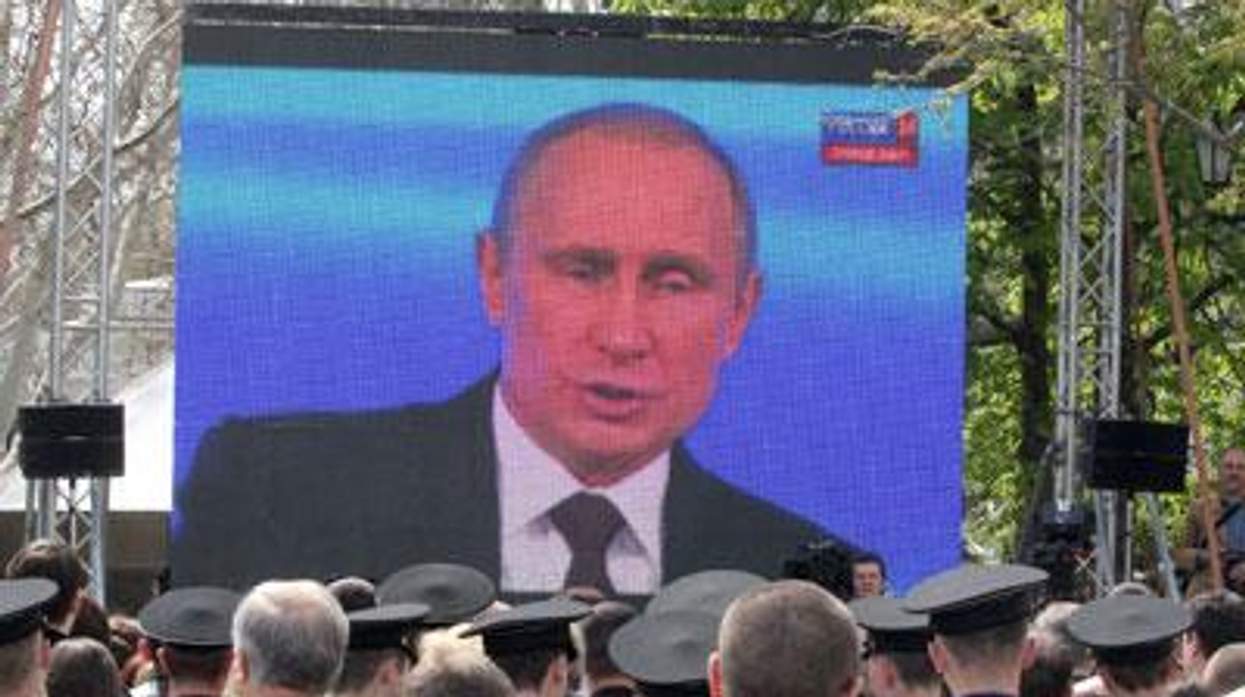LGBT people in Crimea are now subject to Russia's so-called "gay propaganda" law.
Authorities in the Crimean Peninsula, annexed by Russia in February, canceled this year's Pride parade in accordance with the newly effective legislation, which bans "propaganda of nontraditional sexual relationships" to minors.
The march was scheduled to take place April 22-23 in Sevastapol, a port city that is home to the Russian Black Sea Fleet, reports the European Parliament's Intergroup on LGBT Rights.
Vitaly Milonov, a Russian politician who coauthored the "gay propaganda" law for the city of St. Petersburg, upon which Russia's law was based, is calling for more drastic measures that will "eradicate the experimental practice of sodomy" in Crimea, including the creation of a "morality police," censorship of social media, and the closure of LGBT clubs and organizations.
The anti-LGBT legislation in Russia and now Crimea, which recently voted to become part of Russia in a controversial referendum, has sparked concern among human rights activists. Many, like LGBT Intergroup president Ulrike Lunacek, are calling for the European Union and political leaders to continue to pressure Russia to repeal this law.
"The spread of these 'antipropaganda' laws and the calls for further discriminatory restrictions are truly worrying," Lunacek said. "It shows these laws started a dangerous trend of fear mongering and inciting hatred, whereby some wrongly think that it's alright to restrict the rights of a group they dislike. The EU and the Council of Europe need to maintain pressure on Russian authorities."
For LGBT Crimeans, the situation has gone from bad to worse since the annexation. Maxim Kornilov, a gay 29-year-old employee of a cultural exchange organization, told NBC that he would flee to Turkey as soon as financially possible.
"Before Russian occupation it was really complicated to be a gay in Ukraine - that's why I'm still in a closet and feel like trapped," Kornilov said. "Now it's absolutely unbearable."




































































Charlie Kirk DID say stoning gay people was the 'perfect law' — and these other heinous quotes